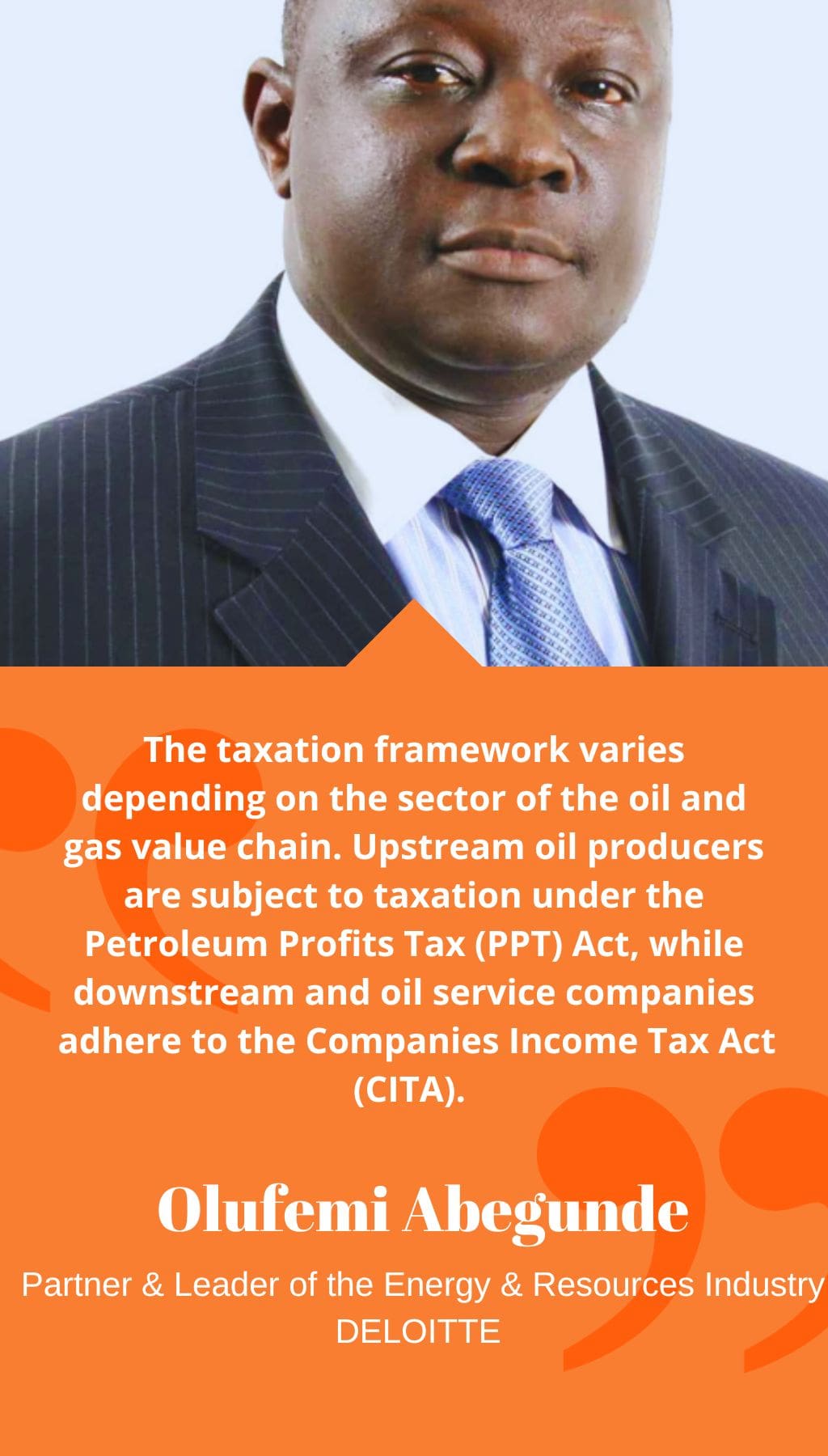
- Nigeria | 12 July 2020

Can you provide an overview of Deloitte Nigeria and its role in the oil and gas industry?
Deloitte Nigeria has evolved from its predecessor, Akintola Williams & Co, which was founded by Mr. Akintola Williams, a renowned figure in Nigerian accountancy, in 1952. Through mergers and growth, it has become Deloitte & Touche Nigeria today.
As the leading professional services firm in Nigeria, Deloitte offers a wide range of services, including audit, tax, risk advisory, financial advisory, and business process advisory, to clients in Nigeria and the West Africa region. We have also organized our operations into industry-specific sectors to better understand and serve our clients. Currently, we have industry groupings for financial services, consumer business, energy resources and industrials, as well as technology, media, and telecommunications.
Deloitte Nigeria has established a strong presence in the oil and gas industry, covering upstream, downstream, and oil service sectors.
Can you provide an overview of the current macroeconomic environment and the fiscal uncertainty in the oil and gas industry?
The macroeconomic landscape in Nigeria continues to present challenges. Despite its potential for rapid growth, the country faces a significant deficit in electricity supply, which hampers economic development. Without sufficient power, the manufacturing sector cannot thrive, leading to an overreliance on trading. This situation limits Nigeria’s ability to maximize its human capital and create substantial value-added contributions to the economy.
In terms of fiscal matters, the government is making efforts to introduce incentives. However, the delay in finalizing key fiscal terms for oil industry operators in Nigeria, often influenced by political factors, hampers the system. International oil companies (IOCs) hesitate to make Final Investment Decisions (FID) due to uncertainty surrounding the incentives and returns they can expect from their proposed projects in the industry.
Furthermore, inconsistent or controversial policies and differing interpretations of previous terms for deepwater operations create contention. For example, there is an ongoing case in the Supreme Court regarding the appropriate application of investment tax credits or investment tax allowances for a particular acreage, which has been ongoing for a decade. These factors erode the confidence of IOCs, who possess the necessary capital to drive the oil industry forward. Consequently, they divert their investments to countries with more stable fiscal terms. Nigeria needs greater stability in its fiscal framework to attract and retain investments.
How does the taxation framework differ across the oil and gas value chain?
The taxation framework varies depending on the sector of the oil and gas value chain. Upstream oil producers are subject to taxation under the Petroleum Profits Tax (PPT) Act, while downstream and oil service companies adhere to the Companies Income Tax Act (CITA). Each sector has its own set of incentives and rules that govern taxation. The differentiation in the value chain is based on the operational context of the company.
Within the upstream operations, there are different tax regimes for deepwater and inland basin operations, incorporating specific incentives and taxes to protect these areas.
How does the newly signed Finance Bill impact the oil and gas industry?
The Finance Bill has two notable impacts on the oil and gas industry. Firstly, dividends declared by oil companies, which were previously exempt from taxes, will now be subject to a 10% tax. Secondly, there is a general increase in the Value Added Tax (VAT) rate from 5% to 7.5%. These changes will have implications for the financial positions and planning of companies operating in the industry.
Since 2020 has been dubbed the “year of natural gas” for Nigeria, what potential does Deloitte Nigeria see in this move towards LNG?
Nigeria needs more than catchy phrases like “the year of gas” – it requires concrete actions. The country had opportunities to establish two additional liquefied natural gas (LNG) plants (Brass and Olokola), but they were missed due to political factors. The funds allocated for these projects were redirected elsewhere. However, if there is renewed interest in revisiting these projects in 2020, it would be a welcome development.
What is your vision for Deloitte in the upcoming five years?
Deloitte Nigeria aims to dominate the market in the coming years. The foundation has been laid, and we have revitalized the firm, transforming it into a sleeping giant. The firm’s leadership has implemented strategic structures and assembled a team of talented professionals to achieve this goal.














